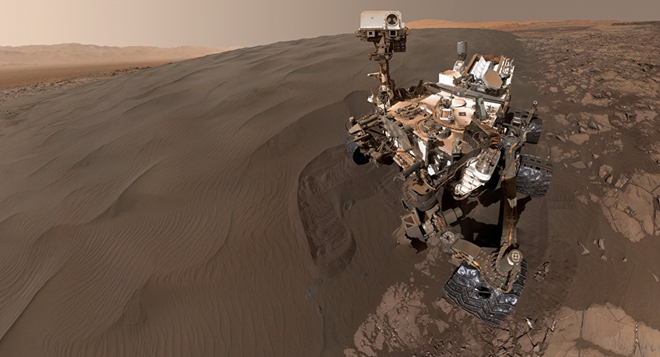Scientists find another 'life element' on Mars
Thứ Năm, 15/12/2016, 16:32
NASA’s Curiosity rover has found boron on the surface of Mars. This chemical element is crucially important for life as it is a key part of many protein molecules and is essential for DNA synthesis.
Scientists reported about their discovery during the annual meeting of the American Geophysical Union in San Francisco on December 14.
"If the boron that we found in calcium sulfate mineral veins on Mars is similar to what we see on Earth, it would indicate that the groundwater of ancient Mars that formed these veins would have been 0-60 degrees Celsius and neutral-to-alkaline pH," Gasda noted.The temperature, pH, and dissolved mineral content of the groundwater could make it habitable.
 |
| According to the researcher, judging by the thickness of layers of rocks containing boron and other elements, such processes could have continued on Mars for hundreds of millions of years. After boron was found on Mars, our chances to find there any traces of life increased, Grotzinger concluded. |
When Curiosity used its Chemistry and Camera (ChemCam) to blast one of the rocks with an infrared beam they boron compounds. It was very unusual and made the researches stop the rover and study the stones using other instruments.
It turned out that the rock consisted mainly of gypsum with layers of boron salts inside. Later on, when Curiosity continued its way to the top of Mount Sharp, more stones even richer in boron were found. Researches presume that the boron salts could have been formed in two ways: either as the result of huge amounts of water evaporating from the surface like it happens on Earth or as the result of chemical interaction between Martian soil and floods of water passing over it.
According to the researcher, judging by the thickness of layers of rocks containing boron and other elements, such processes could have continued on Mars for hundreds of millions of years. After boron was found on Mars, our chances to find there any traces of life increased, Grotzinger concluded.
Sputnik

